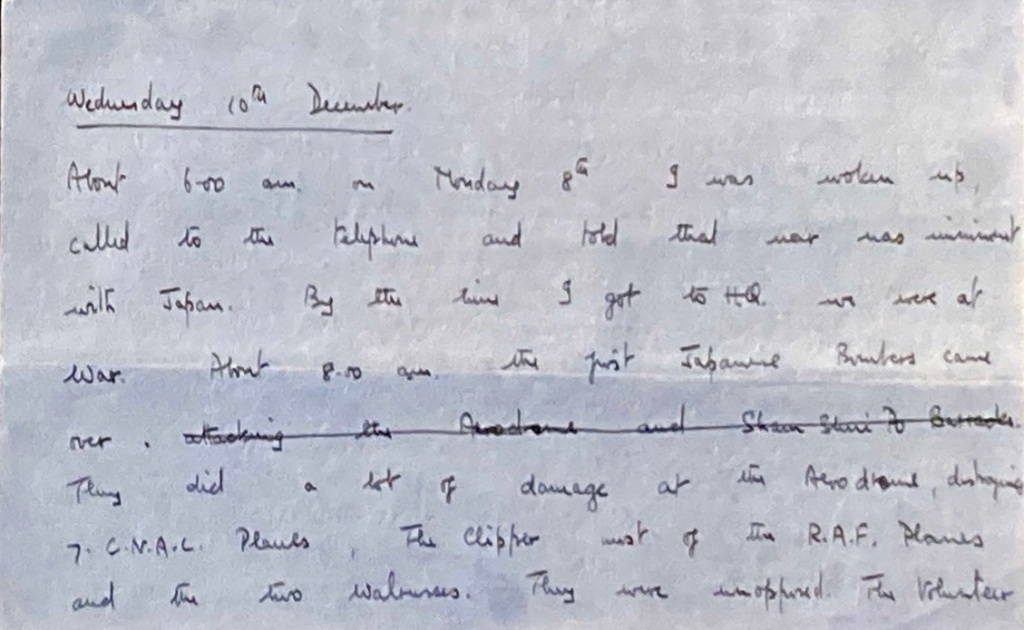On 8th December 2022 it is the 81st anniversary of the Battle of Hong Kong. Let’s just pause for a moment and remember all of those who suffered and died in the battle and in the long years of internment afterwards.
Dad’s diary entries show that right up until the bombing started, there was a sense of denial that the colony could be about to go to war, 6 hours after the attack on Pearl Harbor:
7th December 1941: This morning when I went to the office, I found that the situation had worsened. I don’t really believe that anyone thinks that it will come to anything. We have had so many flaps and lived in a state of tension for so long that we have become blasé. We live only for the day when the rather annoying precautions that interfere with our private amusements are once more considered unnecessary. This is more serious than most. The Hong Kong Regiment have been ordered to get their ammunition onto their mainland positions.
About 6:00am on Monday 8th I was woken up, called to the telephone and told that war was imminent with Japan. By the time I got to H.Q. we were at war. About 8:00am the first Japanese bombers came over. They did a lot of damage at the Aerodrome, destroying 7 C.N.A.C. planes, The Clipper, most of the RAF planes and the two Walruses. They were unopposed. The volunteer A.A. platoon had drawn no ammunition, I suppose because the day before was a Sunday. The gunboat supposed to be in the seaplane anchorage was being used for something else. The Japs made rapid progress down the Taipo Road, and by the evening we were back in Shatin. H.Q. were gravely disappointed with the Stanley guns. They have shot too big a line, boasted that they could get almost to Taipo, in actual fact they can only reach about 1500 yards beyond Shatin Station. We were unable to answer several calls for fire as the targets have been out of range. All the demolitions were successful though we were asked to shoot at the Brothers Point “blow” as the slide had been checked by a retaining wall. Mt. Davis fired five rounds but with what effect we could not tell.
Allied Hong Kong defences were ill prepared and underestimated the enemy’s strength, skill and experience. But Hong Kong’s fall had long been seen as inevitable. In January 1941, PM Winston Churchill had said:
If Japan goes to war there is not the slightest chance of holding Hong Kong or relieving it. It is most unwise to increase the loss we shall suffer there. Instead of increasing the garrison it ought to be reduced. Japan will think twice before declaring war on the British Empire, and whether there are two or six battalions at Hong Kong will make no difference. I wish we had fewer troops there, but to move any would be noticeable and dangerous.
For more first hand accounts of the battle of Hong Kong visit the Gwulo Old Hong Kong Website and to learn how the battle progressed between 8th and 25th December 1941 see the interactive map at Hong Kong Baptist University’s website.

